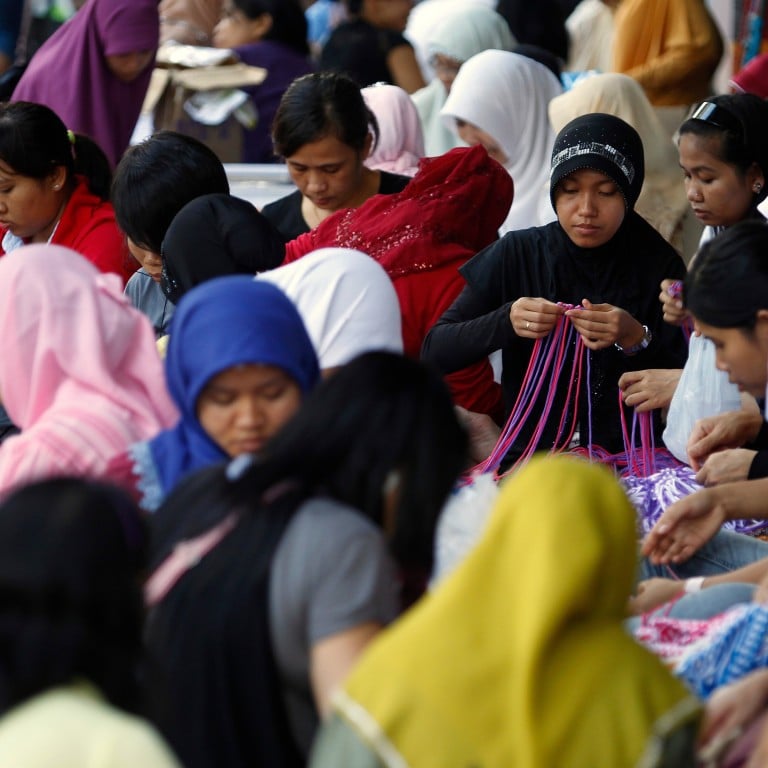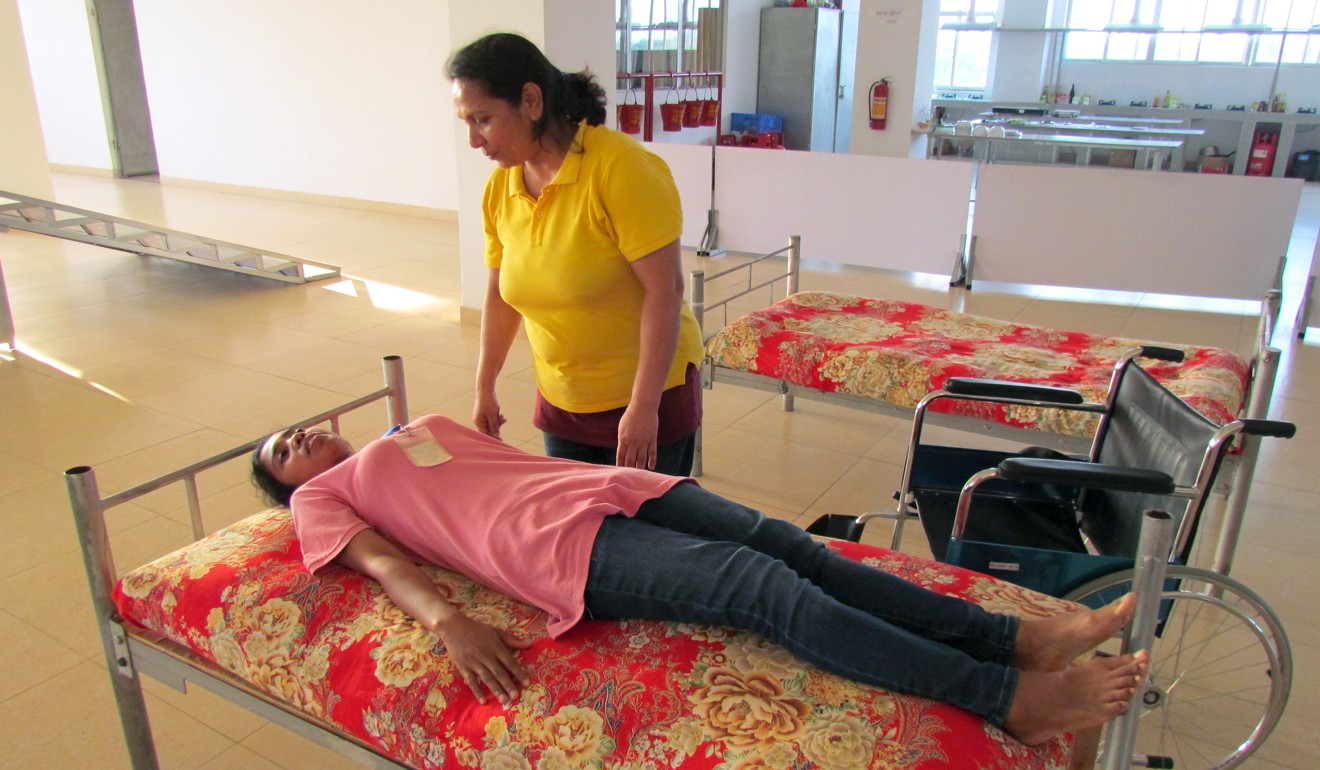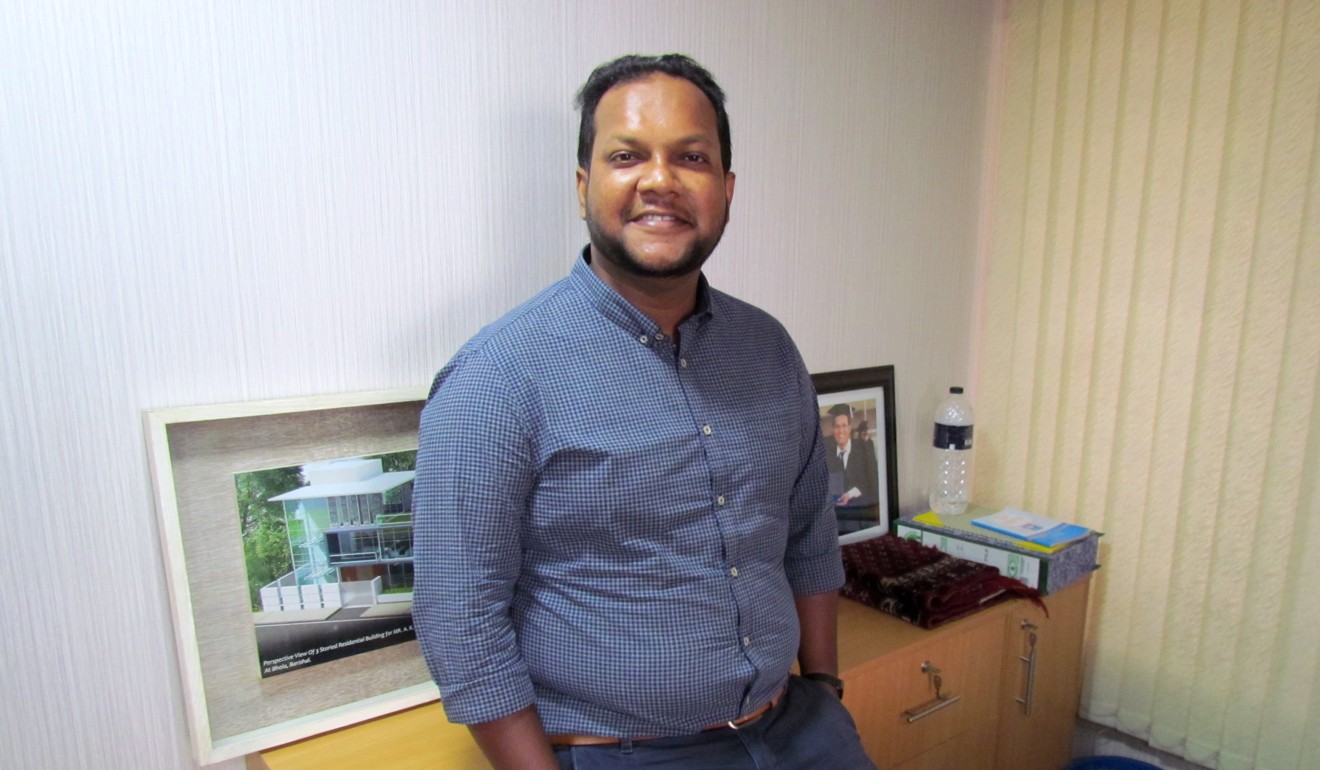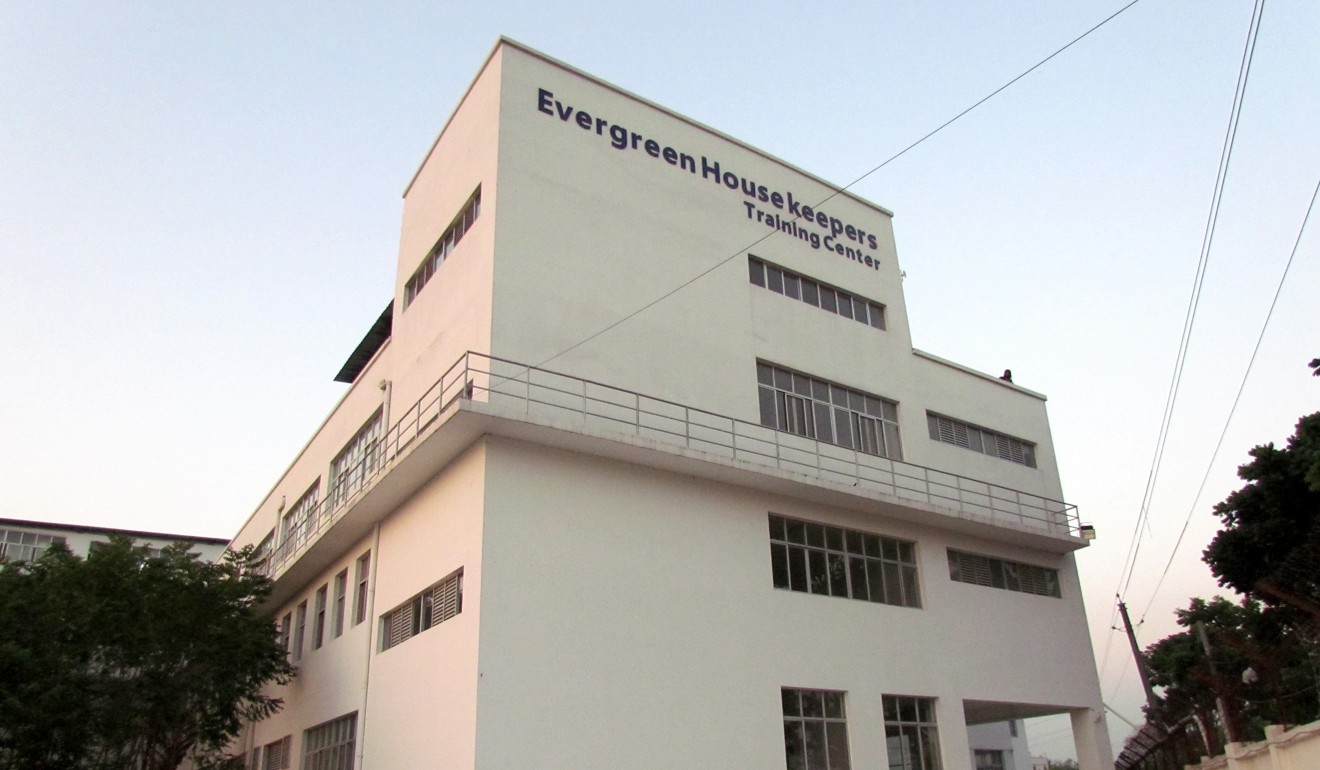
Hong Kong’s domestic worker shortage: Bangladesh can help out, even if Indonesia can’t
- Hong Kong needs more foreign domestic workers, not only to care for its ageing population, but also to counter a policy long threatened by Indonesia
- Bangladesh could be a new source – but the city had faced problems in hiring from there previously
Even before Tajmira received her engineering diploma three years ago, she had prepared herself for the likelihood she would not be able to get a job in the field.
Starved, beaten with hammer: worst domestic worker abuse cases

“I want to earn a lot of money and help my family. It will be my first time to Hong Kong. But I am not afraid. Of course, I am going to miss my family,” Tajmira said at the four-floor training centre in Northern Bangladesh, about an hour’s flight from Dhaka, where she was taking lessons in Chinese cooking and language alongside compatriot Lailatul Ferdous, 41.“No problem. Very easy,” she said in Cantonese when asked if she spoke the language.
Why domestic workers are the modern-day slaves of Asia’s big cities
But hopes of an influx have fallen flat. According to the Hong Kong Immigration Department, there were 275 Bangladeshi domestic workers as of December 2013; 594 in 2014; 650 in 2015; 517 in 2016; 507 in 2017; 501 last year; and 507 in February this year.
Conspiring to hold the numbers back are the slim profit margins of agencies sending them to Hong Kong and the long training period required of the workers themselves. Ziaur Rahman, chief executive of the recruitment company Universal Overseas in Dhaka, said that Bangladeshi women had only recently started working abroad and that agencies had initially been excited about the Hong Kong market.

“The government did not allow women to work abroad 10 years ago because our country was Muslim and we were conservative about them working overseas,” he said. “But now, the situation has totally changed. Before that, we tended to keep our sisters and mothers at home.”
Hong Kong, Ziaur said, seemed a promising destination as it was a “safe and civilised place” – in contrast to the Middle East where between 20 and 30 per cent of domestic workers reported problems including sexual harassment by their employers.
PROBLEMS START
But both workers and agencies had soon run into problems, Ziaur said. To work in Hong Kong, Bangladeshi women were required to undergo a three-month training period that included lessons in languages and cooking. For those going to the Middle East, the training lasts just a month.
“Three months is a very long time. The dropout rate was high,” said Ziaur, whose agency has sent about 100 domestic workers to Hong Kong over the years.
How Hong Kong failed Madagascar’s domestic helpers
The Middle East was also seen as more attractive by agencies, which made a profit of US$400 to US$500 for sending each worker to the region – in contrast to US$100 to US$120 for each placement to Hong Kong, Ziaur said.

He has invested about HK$1 million in his domestic worker business.
While officials from the Philippines and China have discussed allowing Filipinos to work in mainland China as domestic workers, no final decision has been made. At present, only foreigners, as well as people from Hong Kong and Macau, are allowed to hire foreign domestic workers in selected Chinese cities.
Another issue holding Bangladeshi domestic workers back in Hong Kong is that they tend not to speak English as fluently as their Filipino counterparts. Still, the executive director of the Evergreen training centre, Eric Tso Hung-kit, said there were other ways they could stand out. His centre, which started about a year ago and has the capacity to train and send 100 workers to Hong Kong each month, has been training women to care for the elderly and the disabled, an area of expertise where there is currently a great need.
“A lot of Bangladeshis do not know what domestic workers do. The job is very new to them,” Tso said. “To convince them that Hong Kong is a safe place to work, we have been telling them that domestic workers are not slaves.”
VANISHING ACT
Another problem, according to Teresa Liu Tsui-lan, managing director of the Technic Employment Service Centre – the first Hong Kong agency allowed to bring in Bangladeshi domestic workers – was that many of the first to have arrived “disappeared” shortly afterwards.
They ended up working illegally, in some cases as dishwashers in restaurants, making more money than the minimum wage for a domestic worker of HK$4,520 a month, she said.
“My clients have scolded us so badly over the disappearances. There was a case where a worker who had disappeared for four years suddenly contacted us one day,” she said. “Very few Hong Kong agencies are bringing in Bangladeshi helpers now.”
Singapore’s domestic workers vulnerable to forced labour: report
Mehdi Hasan, Bangladesh’s Consul General to Hong Kong, admitted that some domestic workers had worked illegally in Hong Kong but said this was not happening any more. The consulate in 2015 set up a labour office to maintain regular contact with workers.
He hoped there would be 1,000 Bangladeshi domestic workers in Hong Kong in three years’ time.
Hasan said he had discussed bringing in Bangladeshis to work in homes for the elderly with Hong Kong’s top officials Carrie Lam Cheng Yuet-ngor and Matthew Cheung Kin-chung.
“There is an ageing population in Hong Kong … Bangladesh as a young nation can be a good source of skilled domestic workers,” he said.
“We are trying to tell the Hong Kong authorities about this, to bring in more skilled workers to take part in elderly care.”
For those who can overcome the hurdles, working in Hong Kong can be rewarding. Moni, 30, said her life changed for the better when she overcame her fears to come to the city in 2013. Many Bangladeshis were hesitant to come because “this business is still new to them”, she said, but she had done it “because I wanted to help my husband with his business” and her employers had been “very nice to me”.
Indeed, so positive was the experience that after working in the city for five years, Moni returned to Bangladesh to train other women at the Evergreen centre. And she has even mastered Cantonese. ■

